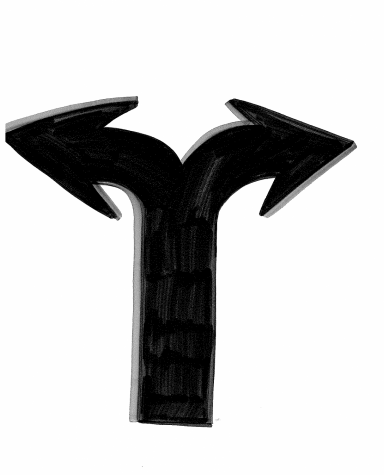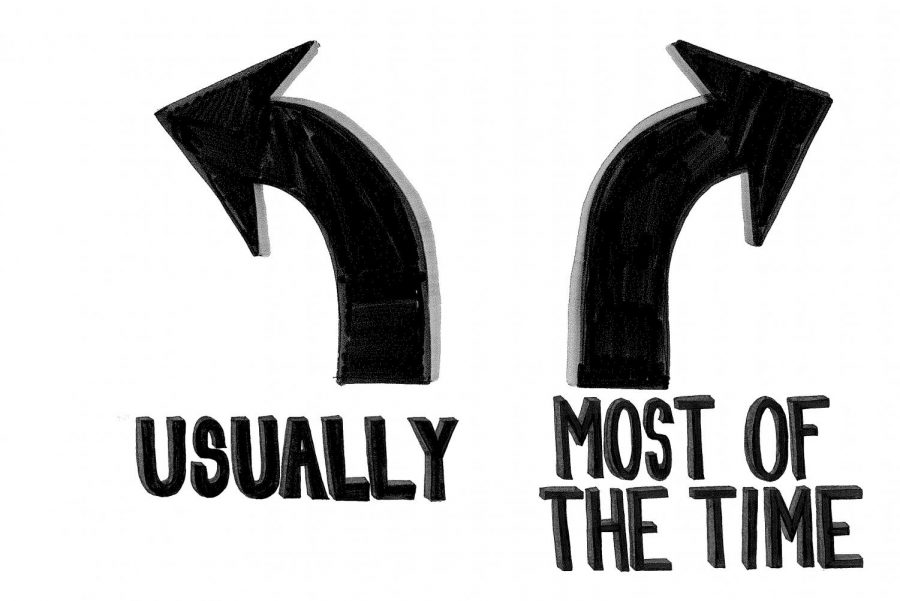Right or left? In politics, it can be hard to tell
LABELS: Left means more government involvement and right means less – but sometimes they’re reversed, as in the debate over abortion rights.
May 20, 2019
“Right” and “left” are used as political terms all the time today, but what do they mean?
The political terms left and right date from 1789 during the French Revolution, when supporters of the monarchy sat on the right side of the National Assembly, while those who favored democracy sat on the left.
Thus the Right is generally more conservative, seeking to protect a strong power structure (at that time the existing power structure, which they hoped to “conserve”). Historically, powerful people have wealth and do not want to share it, so for example the right favors lower taxes, so wanting to keep more of what they have.
The Left, on the other hand, is more likely to want to assist those on the bottom, often through increasing the government’s involvement with society in order to do so. Medicare is an example of the government stepping in, taxing all workers to build a fund that pays for everyone’s health care when they’re older.
According to Government and Economics teacher Mr. William Reusch, the two sides of the political spectrum focus on different parts of society: while the left is skeptical of big business and private enterprise, the right is skeptical of big government.
And each side has its extremes.
“Right is order and left is chaos” said Mr. Reusch. “Too much order is bad. That’s authoritarianism and dictatorship, that’s Naziism. Too much chaos is anarchy.”
The Right, he said, says, “we need to make it so people from the bottom can go up. It’s all about work hard, work hard, do your thing.”
The Left, he said, says that hurts the lower classes.
“The Left says, ‘Yeah, that’s good, but what about them?’” he said. “They focus on them, because they don’t have a voice.”
In the real world, however, the terms are not exact in how they apply. For example, liberals favor restrictions on hate speech and guns, but not on who you can marry or whether you can terminate a pregnancy. The right opposes restrictions on guns but favors them in reproductive matters.

The positions are sometimes reversed in Israel as well — and sometimes not.
The Israeli right is more likely to support building more settlements in the West Bank to solidify Israel’s presence and power there. The left is more concerned about the rights of the less powerful — in this case, Palestinians — and still supports a “two-state solution” that would give them a country of their own, including on some land currently under Israeli control.
Similarly, regarding the Haredi draft law, Mr. Zev Hurwitz of the American Jewish Committee said the Left actually favors more regulation — ultra-Orthodox Israelis should be required to serve in the IDF — while many on the Right argue that they should have the personal freedom to prioritize Torah study.
But on the other hand, Israel’s religious Right is generally in favor of laws that would close stores for 25 hours on Shabbat — more government regulation — in line with Jewish law, while the Left would say that policy hurts the secular population as well as Israeli commerce and business at large, and the government should stay out of it.
“The whole left – right prism is shifted” in Israel,” Mr. Hurwitz said, “and that’s why you’ll hear Blue and White and the Labor party referred to as the ‘center-left’ as opposed to the ‘left-left.’”
Current Prime Minister Benjamin Netanyahu is widely expected to form a coalition government with “right-wing” parties, including traditional religious parties that favor freedom from the draft law but not from 25-hour business closures.
Other pro-Netanyahu parties favor his pledge, made in the last few days of the campaign, to annex the entire West Bank, closing off the two-state solution and retaining the power of Israel there.
Wherever they might have sat in the National Assembly of France, in the 2019 elections in Israel the Likud and Blue-and-White parties weren’t too far apart on the issues, according to Judaic Studies teacher Mr. Jeremy Shine.
“Blue and White say they want to negotiate with the Palestinians,” said Mr. Shine. “We don’t hear much about that from Likud, but they haven’t said we’re not going to negotiate with the Palestinians. It could be the fact that Netanyahu is up for indictment charges for corruption pushed people towards Benny Gantz.”
Get the latest from The Boiling Point. Sign up for our news feed.














